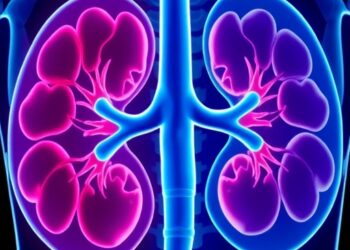Researchers from the University of Otago, Christchurch, have spearheaded the discovery of a protein function which has the potential to guide the development of novel cancer treatment options and improve the diagnosis of various cancers.
Researchers from the University of Otago, Christchurch, have spearheaded the discovery of a protein function which has the potential to guide the development of novel cancer treatment options and improve the diagnosis of various cancers.
The exciting research finding, carried out alongside Dr Vanessa Morris from the University of Canterbury’s School of Biological Sciences as well as researchers in Australia and Denmark, centres on the activity of a tumour- suppressing protein called p16.
The discovery, published in the British scientific journal Nature Communications and first authored by University of Otago, Christchurch PhD student Sarah Heath, has shown that p16 has the ability to dramatically alter both its structure and its function.
“This discovery was a real surprise,” says lead researcher Dr Christoph Goebl, a Principal Investigator at Mātai Hāora – the Centre for Redox Biology and Medicine, in the campus’s Department of Pathology and Biomedical Science.
“We know that some proteins can be modified chemically to impact their structure and functions, but this is the first example of such a dramatic structural and functional change”, Dr Goebl says.
“We even found that it’s fully reversible – such dramatic changes were probably not believed possible until now.”
Dr Goebl says under normal conditions, the protein p16 protects cells from uncontrolled cell division. However, once it changes to what’s known as the amyloid (or dysfunctional) state, it loses this protective function.
“We found that the protein does its job perfectly when in the native state but loses all its abilities when in the amyloid state,” he explains.
“We currently think that this transition isn’t just a random process but likely a functional switch, and we were very surprised how black and white our results were regarding its function.”
Dr Goebl says his team made the discovery following many years testing p16 in the laboratory, using a combination of molecular and cellular experiments.
He says once the protein is oxidised and in the amyloid state, it can be disassembled and “switched back to normal” by reversing its oxidation. Therefore, the team was able to discover a redox-based amyloid system which can switch between its normal state and the amyloid state by creating or breaking one chemical bond.
“The data looked almost too good to be true, but the more often we repeated our experiments, also with our collaborators overseas, the more confident we were that what we observed was real.”
Dr Goebl says p16 is amongst the top five proteins found to be mutated in various cancers, with the ability to actively cause certain types of cancer when damaged.
“Although this will be a future task for us to fully unravel, it could be that this amyloid transition plays a large role in cancer formation, and potentially also plays a role in the response to certain cancer therapies,” he says.
“This discovery has the potential to guide the development of novel treatment options and improved diagnostic procedures for various cancers.”
The Royal Society Marsden Fund and Health Research Council of New Zealand-backed study took fifteen researchers and four years to reach its conclusions.
With further support from the HRC, alongside fresh funding from the Canterbury Research Medical Foundation and the Cancer Research Trust, the team are now studying this structural transition and how it works in several different types of cancer cells.
“There are multiple avenues we are exploring, some range from using this novel knowledge to improve diagnostic procedures all the way to the development of new treatments that stabilise the protein in its native and healthy state,” Dr Goebl says.
He says this discovery could not have happened without support too from the people of Ōtautahi Christchurch.
“We are very grateful that so many cancer patients here in Christchurch are very generously donating their tissues to the He Taonga Tapu Cancer Society Tissue Bank, which has supported our work so far and will continue to do so in future,” Dr Goebl says.
“I am confident that together with our collaborators in the USA, Canada, Europe and Asia we will be able to understand this new protein behaviour and turn it to our advantage for use in future potential cancer treatments.”
Journal
Nature Communications
Article Title
Amyloid formation and depolymerization of the tumour suppressor protein p16INK4a is strictly controlled by an oxidative thiol-based mechanism
Article Publication Date
1-Jul-2024




